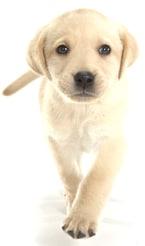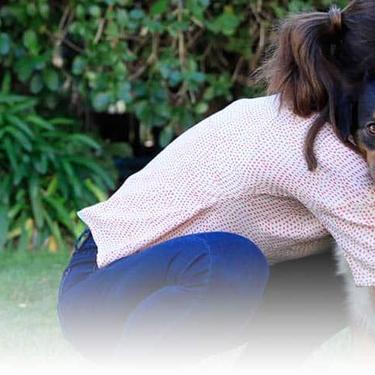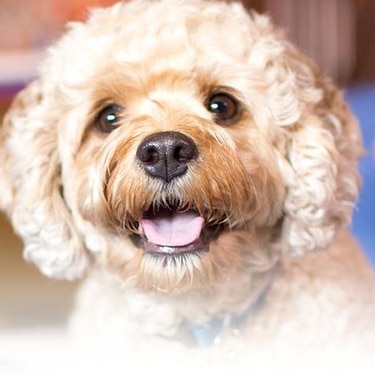
-
ผลิตภัณฑ์แนะนำ
 Adult Small & Mini Chicken & Brown Rice Recipe Dog Food
Adult Small & Mini Chicken & Brown Rice Recipe Dog Foodสำหรับสุนัขสายพันธุ์เล็กและมินิ ที่มีระบบการเผาผลาญพลังงานสูง
ช้อปเลยตอนนี้ Hill's® Science Diet® Adult Small Bites Chicken & Barley Recipe dog food
Hill's® Science Diet® Adult Small Bites Chicken & Barley Recipe dog foodเสริมสร้างมวลกล้ามเนื้อ สำหรับสุนัขที่ชอบขนาดเม็ดเล็ก
ช้อปเลยตอนนี้ Hill's® Science Diet® Adult 7+ Small Bites Chicken Meal, Barley & Rice Recipe dog food
Hill's® Science Diet® Adult 7+ Small Bites Chicken Meal, Barley & Rice Recipe dog foodให้พลังงาน เสริมสุขภาพเส้นขนและผิวหน้ง สำหรับสุนัขที่ชอบเม็ดขนาดเล็ก
ช้อปเลยตอนนี้ความต้องการด้านสุขภาพผลิตภัณฑ์ที่เกี่ยวข้อง Kitten Chicken Recipe Cat Food
Kitten Chicken Recipe Cat Foodเสริมสร้าง 5 พื้นฐานสำคัญในขวบปีแรก
ช้อปเลยตอนนี้ Adult 7+ Indoor Chicken Recipe
Adult 7+ Indoor Chicken Recipeให้พลังงานที่เหมาะสม , และช่วยให้ผิวหนังและขนสวยสุขภาพดี สำหรับแมวสูงวัย เลี้ยงในบ้าน
ช้อปเลยตอนนี้ Adult 7+ Hairball Control Chicken Recipe Cat Food
Adult 7+ Hairball Control Chicken Recipe Cat Foodไฟเบอร์ธรรมชาติ ช่วยลดการเกิดก้อนขน
ช้อปเลยตอนนี้ -
สุนัข
- เคล็ดลับและบทความเกี่ยวกับสุนัข
-
การดูแลสุขภาพสุนัข
- น้ำหนัก
- ภูมิแพ้อาหารและสิ่งแวดล้อม
- ทางเดินปัสสาวะ
- ทางเดินอาหาร
- ข้อต่อ
- ไต
-
ช่วงอายุของสุนัข
- โภชนาการสำหรับสุนัขโต
แมว- เคล็ดลับและบทความเกี่ยวกับแมว
-
การดูแลสุขภาพแมว
- น้ำหนัก
- ภูมิแพ้อาหารและสิ่งแวดล้อม
- ทางเดินปัสสาวะ
- ทางเดินอาหาร
- ไต
-
ช่วงอายุของสุนัข
- โภชนาการสำหรับแมวโต
- โภชนาการสำหรับแมวสูงวัย
บทความแนะนำ เคล็ดลับการเก็บรักษาอาหารสัตว์เลี้ยง
เคล็ดลับการเก็บรักษาอาหารสัตว์เลี้ยงที่ที่คุณเก็บอาหารสุนัขหรือแมวของคุณจะสร้างความแตกต่างอย่างใหญ่หลวงให้กับคุณภาพและความสดใหม่ของอาหาร เมื่อมีการเปิดอาหารออกมา คำถามและคำแนะนำทั่วไปบางอย่าง สำหรับการเก็บรักษาอาหารสุนัขหรือแมวแบบกระป๋องและแบบแห้งของฮิลส์ให้เหมาะสม
อ่านเพิ่มเติม เบื้องหลังวิทยาศาสตร์อันน่าทึ่งของไมโครไบโอมในสัตว์เลี้ยง
เบื้องหลังวิทยาศาสตร์อันน่าทึ่งของไมโครไบโอมในสัตว์เลี้ยงเบื้องหลังวิทยาศาสตร์อันน่าทึ่งของไมโครไบโอมในสัตว์เลี้ยง
อ่านเพิ่มเติม Antioxidants: Fueling your cats fight against free radicals
Antioxidants: Fueling your cats fight against free radicalsLearn more about free radicals and how antioxidants help provide some protection against free radicals and how Hills pet foods makes a difference.
อ่านเพิ่มเติม -



Whatever the breed, all puppies develop in the same way; they pass through the same stages from infancy to maturity. Not only is it interesting for you to know about these stages, it is also important that you should be aware of what your puppy is capable of at any particular time of his life.
Although puppies follow the same pattern of development, speeds can vary depending on the breed. Generally speaking, smaller breeds develop faster and attain maturity before they're a year old; larger-breed dogs can take as long as eighteen months to develop fully.
From Birth to Two Weeks
During these early few days, just like a new-born baby, your puppy will just sleep and suckle. But he'll be able to crawl. If he's cold he will seek the warmth of his brothers and sisters or his mother. Between 10 and 14 days, his eyes will open but his sight is weak for the first few weeks.
Week Three
Your puppy's teeth will begin to come through, and he'll learn to walk and drink. By the end of the third week, his sense of smell will develop. The breeder of your puppy should subject him to mild stress, but this isn't anything to be alarmed about. Simply picking him up and holding him in different positions is defined as mild stress. This will get your puppy used to human handling, and help him to cope later on in life.


เคล็ดลับความอร่อย
ลูกสุนัขอาจต้องพาไปฉีดวัคซีนหลายครั้งในปีแรก โดยทั่วไป สุนัขโตจะได้รับประโยชน์จากการตรวจสุขภาพประจำปี ในขณะที่สุนัขสูงวัยหรือสุนัขที่มีความต้องการพิเศษอาจต้องพาไปตรวจสุขภาพบ่อยกว่านั้น
From three to 12 weeks: Socialization
This is a critical time for your puppy. If he's to develop into a happy and healthy and well-balanced dog, he needs to experience humans, other dogs and his surroundings.
- Stage One: From three to five weeks: Your puppy will start to react to loud sounds, which is useful for mother when she growls at him to stop him feeding at will. Up to four weeks, his hearing, sight and sense of smell are working more efficiently. He'll bark, wag his tail and play-bite his brothers and sisters. He'll also begin to eat solid food and leave his sleeping area to go to the bathroom. From four to five weeks, he'll chase and play head shaking games; he'll also bare his teeth, growl, and carry things in his mouth.
- Stage Two: From five to eight weeks: Your puppy's face will become more expressive and his ears and eyes will be more coordinated. He'll join in playing games with his brothers and sisters and by the seventh week, he'll be ready to go to his new home. By the end of the eighth week, he'll be curious and willing to explore and investigate everything; but at the same time, he'll show signs of caution.
In the final week before you take your puppy home, he should be taken away from his family and he should come into plenty of contact with humans -- children as well as adults. He should also get at least five minutes attention each day.
From week six to eight, your puppy will begin to settle in with you and your family and he'll experience the sights, sounds and smells of his new home. As soon as he crosses your threshold, you should begin housetraining. - Stage Three: From eight to 12 weeks: Your new puppy will experience a very strong desire to please you as he assesses his position in a new family. You'll begin to teach him to play human games and help him to reduce his play-biting.


ผู้เขียนของเราท่านหนึ่งได้เตรียมบทความนี้ไว้สำหรับคุณ
ผลิตภัณฑ์ที่เกี่ยวข้อง

สำหรับสุนัขสายพันธุ์เล็กและมินิ ที่มีระบบการเผาผลาญพลังงานสูง

เสริมสร้าง 5 พื้นฐานสำคัญในขวบปีแรก

เสริมสร้างมวลกล้ามเนื้อ สำหรับสุนัขที่ชอบขนาดเม็ดเล็ก

ให้พลังงาน เสริมสุขภาพเส้นขนและผิวหน้ง สำหรับสุนัขที่ชอบเม็ดขนาดเล็ก
บทความที่เกี่ยวข้อง


เรียนรู้เกี่ยวกับการเลือกอาหารสุนัขที่ถูกต้อง ช่วยให้มั่นใจได้ว่าสุนัขโตเต็มวัยของคุณจะได้รับโภชนาการที่สมดุลถูกต้อง

หาคำตอบว่าสุนัขท้องหรือสุนัขที่กำลังได้รับการพยาบาลกินอะไรได้บ้าง เพื่อให้พวกเขาและลูกๆ มีสุขภาพดี

Learn about choosing the right dog food to help ensure your adult dog will receive the correct balance of nutrition.

ทำให้สุนัขของคุณลดน้ำหนักโดยที่พวกเขาไม่รู้ตัว
สูตรแคลอรี่ต่ำของเราช่วยให้คุณควบคุมน้ำหนักของสุนัขได้ อุดมไปด้วยโปรตีนคุณภาพสูงสำหรับสร้างกล้ามเนื้อ และผลิตจากส่วนผสมที่มีประโยชน์เพื่อมื้ออาหารที่อร่อยและมีคุณค่าทางโภชนาการ สารต้านอนุมูลอิสระที่ได้รับการพิสูจน์ทางคลินิกแล้วอย่างวิตามินซีและอี ช่วยส่งเสริมระบบภูมิคุ้มกันให้แข็งแรง
ทำให้สุนัขของคุณลดน้ำหนักโดยที่พวกเขาไม่รู้ตัว
สูตรแคลอรี่ต่ำของเราช่วยให้คุณควบคุมน้ำหนักของสุนัขได้ อุดมไปด้วยโปรตีนคุณภาพสูงสำหรับสร้างกล้ามเนื้อ และผลิตจากส่วนผสมที่มีประโยชน์เพื่อมื้ออาหารที่อร่อยและมีคุณค่าทางโภชนาการ สารต้านอนุมูลอิสระที่ได้รับการพิสูจน์ทางคลินิกแล้วอย่างวิตามินซีและอี ช่วยส่งเสริมระบบภูมิคุ้มกันให้แข็งแรง

